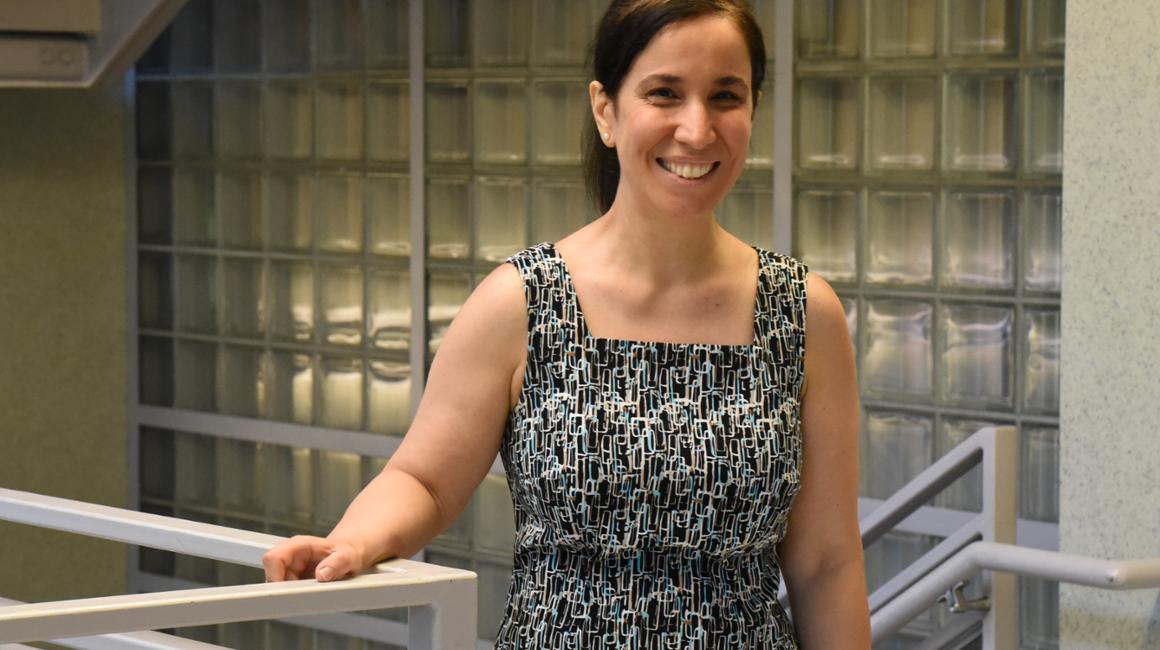Dr. Faitha Benmokhtar
You get a sense of Dr. Benmokhtar's excitement for her research and her students the minute you meet her. "When I see students I see myself when I was young," she says with a big smile. "I put myself in their shoes. I want them to learn and enjoy what they are learning. When I teach I try to make it useful and make it applicable for their life."
Dr. Benmokhtar came to Duquesne in 2012 as a visiting professor and went on to become an assistant professor in 2014. She is a nuclear physicist and teaches courses in particle physics, thermal physics, advanced electromagnetism and mathematical methods for physicists and engineers. She investigates the structure of protons and neutrons through their elementary constituents: the quarks. "The smaller the object you want to measure the bigger your apparatus must be. To measure quarks we need an apparatus that is the size of Duquesne," she says.
During the academic year she works with about five students and up to nine or ten in the summer. They do data analysis and software development. Her work is supported by the National Science Foundation (NSF) and the US Department of Energy. Many of her students have had research internships at the U.S. Dept. of Energy's Thomas Jefferson National Accelerator Facility in Newport News, VA and the Istituto Nazionale di Fisica Nucleare (INFN) in Italy. A lot of the work they all do is put into her own experiments at the Jefferson Lab.
"Even if they don't do nuclear physics in the future just the experience they learn, communication skills, talking with collaborators from all around the world, it really brings them up. Some of them are really shy in the beginning but after a year or two they are speaking and presenting posters at both national and international conferences," she says.
"I love it here at Duquesne. I feel like I am myself here, especially working with the students. It's a happy responsibility." Her role as a mentor also carries over to her work as member of Women in STEM at Duquesne University, which aims to promote and support women in basic and applied sciences, technology, engineering and mathematics career paths.
Born and raised in Algeria, Dr. Benmokhtar says that "English is my fourth language!" She is Berber and her parents lived in the mountains before moving to Algiers in 1966. Dr. Benmokhtar is fluent in Berber, French and Arabic. With her siblings they also speak an Algerian mixed dialect that even incorporates elements of Spanish. She and her husband have a five-year-old son, Andy, who is "very full of energy and very curious," she says. "It's just the joy of my life."
While grounded in family, her research and teaching are the other joys in her life. "The application (of our work) may not be for right now. But in 10 years, 20 years there is. History shows that. For example the MRI." Her love of physics came at an early age and from an unexpected place. "When I was 12 years old I decided to do nuclear physics, not just physics, but nuclear physics. I was precise!" One of her neighbors worked in the field and she though, "if he can do it I can do it."
News Information


